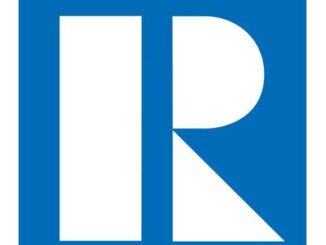
The Agency founder Mauricio Umansky has never been shy about pushing the envelope.
In 2017, the broker, along with David Barnes, James Harris and Christopher Dyson, founded The PLS.com, a national home listing site. As a firm, The PLS.com took issue with the National Association of Realtors’ so-called “pocket listing ban,” filing a lawsuit in May 2020 that was ultimately dismissed earlier this week. In the suit, The PLS.com said the ban harms the housing market by eliminating competition for the multiple listing services.
On Tuesday of last week, Umansky — this time alongside Compass luxury agent Jason Haber — decided to yet again inject some competition into the real estate industry. The pair announced the creation of the American Real Estate Association (AREA), a trade group alternative to NAR.
HousingWire recently sat down with Umansky to discuss the creation of AREA and his hopes for the fledgling trade group.
This interview has been edited for brevity and clarity.
Brooklee Han: I have spoken with Haber about the creation of AREA, but I was hoping you could share your views on how this idea came about.
Mauricio Umansky: My motivation is to make my industry, that has given so much to me and that I have been a part of for nearly 30 years, better.
I think there has been a disappointment and disgust among real estate agents for many, many years now, with the National Association of Realtors in what they advocate and do for us. And there has just been a lot of people that have been tremendously disappointed over the years. Forever it has been an organization that is just too big to fail, and it was monopolizing the industry.
Fortunately or unfortunately, there is a time and a moment in history where there is an opportunity to create something new, something different, something that I consider to be better. The way I look at it is that there are enough real estate agents in the country that want to change and we don’t have to be for everybody. We are going to be an association built by agents for agents. I think that is what happened with NAR in the 1800s, but after over 100 years, it’s become an organization with a board of directors of 1,275 people — how does that not become a bureaucracy? How does that work?
Right now, unfortunately, NAR has a sex scandal and harassment, and the lawsuits and financial risk due to how the lawsuit was handled. And that has created an opportunity for change, but it has also caused agents to be disappointed with the way our association, that we pay so much money for, has handled us.
I just don’t think the lawsuit issue was taken seriously, or at least the messaging wasn’t very serious. The message was always like, ‘We got this, don’t worry about, it is all good,’ and look where we are.
BH: Many agents I have spoken with say they don’t have a strong desire to be a NAR member but maintain their membership either for access to their local MLS, or because it is or was a requirement of their brokerage. How are you hoping to create a trade organization that people genuinely want to be a part of?
Umansky: When you are forced to do something, that is what I mean by a monopoly. I think it should be a choice, that you feel like your association is giving back to you and it is doing good things. I think there is room for multiple associations. There are many industries that have multiple associations. With only having one association, I think it has had a negative impact as people just don’t have a choice.
BH: You founded The PLS.com and are not a stranger in trying to create choices for industry professionals in spaces where they may not have a lot of options. Can you tell me a bit about this long-term drive to create choices for agents?
Umansky: I am not against the trade association, nor is this a vendetta by any means. The want to create The PLS was an idea to make the industry better. It was a need; it was something that people wanted.
Today, consumers still want it; they are frustrated with things. Yesterday, I was walking down the street and ran into one of my clients, and he said he has been reading about what I am doing. And he said, ‘It’s about time. The way that the MLS rules are just hurting me, hurting consumers, it is so bad.’ This is a man who owns a lot of real estate. I’ve had conversations with MLSs, and they agree and are forced to be compliant unless they are one of the MLSs that are not a part of NAR, like REBNY.
In my opinion, it doesn’t have to be one way or the highway — there should be options and choices for everybody.
BH: What are some of the guiding pillars you and Haber are using to help lay the groundwork for AREA?
Umansky: There are three that we are focusing on. The first is advocacy and lobbying. Basically, we want to make sure that the advocacy and lobbying we are doing occurs at the local or regional level versus the federal level. We believe that a lot of the issues that are happening in real estate need to happen at the local level. As an example, I am in Los Angeles, and the ULA tax was not looked at or brought up by NAR, and similar things happen other places. So, NAR is looking at stuff at the federal level, but in reality all this other stuff happens at the local level, and I think we need to do something about that.
The second thing is to create a national listing service. There are hundreds of MLSs in the country, and there is no reason why there shouldn’t be a national listing service where we as agents pay one fee, and we can have access to the entire country and be better advisers to our clients. Right now, if we want to look at properties around the country, we either have to join yet another MLS or go on websites like Zillow, and how does that help us give our buyers a competitive advantage?
I’m a licensed California agent and I live in Encino, but I do most of my work in Beverly Hills and Bel Air. Because I live in Encino, that allows me to do some work in Santa Barbara because I’m only 30 or 45 minutes away, but if I want to work there, I have to pay dues for another MLS.
The third pillar is education, but education from a different perspective — really making better Realtors, leveling them up, making us better advisers. We want to offer fun education that people want to be a part of. We want our conferences to be exciting and valuable, and that people want to be there. We want to develop a great culture, because if you do that, then they’ll pay attention to the emails we send them about lobbying efforts or common scams, and not just think it’s spam or automatically put it in the delete folder. You have to develop a great culture in order to have a great organization.
BH: There have been conversations about uncoupling the MLSs from the Realtor associations. I know you are in the early planning stages with AREA, but do you see the National Listing Service being attached or separate from AREA?
Umansky: We are still figuring that out. AREA will obviously be a nonprofit organization, which it has to be in order to actively lobby, and I think the listing service will be a for-profit organization so that it can continue to develop the best technology and deliver the best service. So, does that mean AREA has an arm that owns part of NLS? Does that mean it should be uncoupled? I have no idea.
There are a lot of things we still have ideas about. Like, we believe the regional Realtor associations could be part of AREA if they wanted to. We don’t need to go regionally and start creating regional associations, but we could work with the regional associations and local MLSs to figure out what options are available and how we can work together.
BH: As you work to build the organization, there are certainly many options and paths you could take. You said you want this to be an organization built by agents for agents, so how are you working to incorporate agent feedback into your planning?
Umansky: Right now, we are getting a lot of emails and messages from agents who are interested and want to be part of things. So, we are asking everyone who wants to, to submit their email to AREAUSA.org, and we are going to start reaching out to everyone with polls to get feedback on ideas.
We want to create an environment that brings it all together and makes it a collaborative experience. We had a fireside chat with about 40 agents here in Los Angeles this week. I think we can continue to do that and hear people’s frustrations, what they like and their ideas, and see how our ideas resonate with them. That is a good place to start.
BH: AREA has been soft launched, but when are you hoping to see a hard launch of the trade group?
Umansky: I’d like to say 120 days from now. I don’t know how realistic that is. I can tell you we are in the middle of filing our 501(c)(6) association so we can start operating. We are also in the middle of filing trademark, so we are doing all the legal work and getting all of that moving, but we also need to fund it. Right now, it is just Jason and I funding it, so we are looking for seed money. So, yes, the goal is 120 days from now, but obviously that’s a goal and it could change.
BH: What has the industry response been so far?
Umansky: It is super positive. Most people seem to feel that it is needed and are grateful someone is doing something. There is just this frustration in the industry. It has been a week since we kind of announced it. We launched AREAUSA.org a week ago Wednesday, we already have 3,500 sign-ups, and we have not advertised or marketed the site at all. So, that is a tremendous number of sign-ups with no effort into marketing.
BH: Are you at all concerned about pushback from NAR?
Umansky: 100%. There is concern, but given the timing of everything and all the antitrust lawsuits they are dealing with, if they tried to stop us with a new rule or stop agents from joining, it would just lead to another antitrust lawsuit. They can’t just keep pushing rules and laws and stop everyone from creating free competition.



